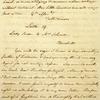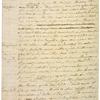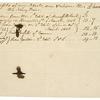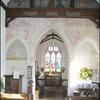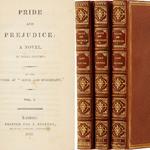Profits
Lady Susan
Faux novel plan
Pen and Ink
Lace detail included
in letter to Cassandra,
2 June 1799
In Jane's own hand...
"Jane believed that the true art of letter-writing was to express on paper exactly what one would say to the same person by word of mouth, much like sitting with friends gossiping about the latest fashions, local activities and the people. She loved to write about people, real and imagined. So the letter to her brother Frank, aboard HMS Elephant, was filled with the goings on at the previous evenings dinner party; not spending too many words on the fabrics as men found such things dull. But she talked of Annabelle and her brother's exploits and Lord Moore-Jeffries' latest trip to the continent. She went into great detail when telling of the activities of her nieces and nephews, Edward's children. She finished the letter by signing her name with a bit of a flourish just as the bell at the gate chimed the arrival of the post rider.
She turned at the soft knock on the drawing room door and smiled as Maggie came in with three letters. The housekeeper made a quick curtsy and put them on the small round table just inside the door.
There is one from Miss Austen, Miss Jane, then she hurried off to complete the task interrupted by the postal delivery.
After reading Cassandra's letter and a note from her publisher, Jane added a postscript to the long letter she had just completed writing to Frank:
"You will be glad to hear that every copy of S&S is sold and that it has brought me £140 besides the Copyright, if that should ever be of any value. I have therefore written myself into £250 which only makes me long for more. I have something in hand which I hope on the credit of P&P will sell well, though not so
entertaining. And by the bye shall you object to my mentioning the Elephant in it, & two or three of your other old ships? I have done it, but it shall not stay, to make you angry. They are only just mentioned."
from Yours affectionately, Jane Austen
although the postscript is from one of Jane's letters
Is it not strange that the most prolific and successful writer in a well-educated and erudite family seems not to have kept a journal, diary or pocket book of any kind? At least none has survived to my knowledge. We know that the surviving letters written by Jane Austen were edited, censured, if you will by her older sister Cassandra before she gave them to the younger members of the family as remembrances of their aunt Jane. Makes you wonder, does it not, what else she may have edited or destroyed? Did those things tossed on the pyre include a journal?
Religion and faith were a large part of Jane's life as these prayers demonstrate. They show an obvious desire to remain humble in the face of her innate and enviable talent.
Click on 'Three Evening Prayers' for the full text.
Double click here to add text.
The  monies Jane made from the publication and sale of her books did not allow her to be independent but must have given her a real sense of accomplishment.
Thankfully some documents have survived giving us a peek into the consciousness and character of the woman of two centuries.
It is a shame that Cassandra felt the need to protect Jane's character for posterity by editing and there by destroying many of the things Jane wrote. More of the 3000 letters said to have been written by Jane might have given us insight into the complex nature of the woman whose work spans the ages. On the other hand it is that very mystique that keeps us fascinated and continuing our quests to delve into the woman who still captivates the world.
But when the old Saint was informed of these doings
He made but one Spring from his Shrine to the Roof
Of the Palace which now lies so sadly in ruins
And then he addressed them all standing aloof
Oh! subjects rebellious! Oh Venta depraved
When once we are buried you think we are gone
But behold me immortal! By vice you’re enslaved
You have sinned and must suffer, ten farther he said
Jane wrote the poem, The Winchester Races, while living in the house at
8 College Street. Too weak to take pen in hand she dictated it to Cassandra. It appears now that her sister may have started the editing process even before Jane died. This dictated poem is an example:
As you can see the second and fourth lines of each stanza were meant to rhyme. Seems evident that Cassandra, with Jane's death imminent, chose to write gone rather than dead which is more than likely the word Jane used, since gone does not rhyme with said.






